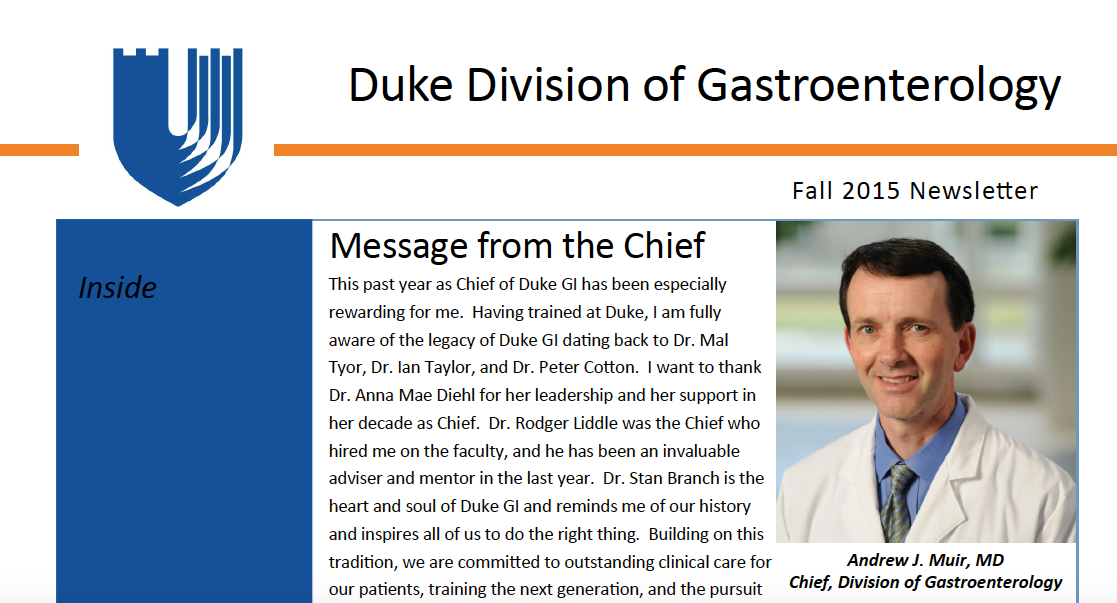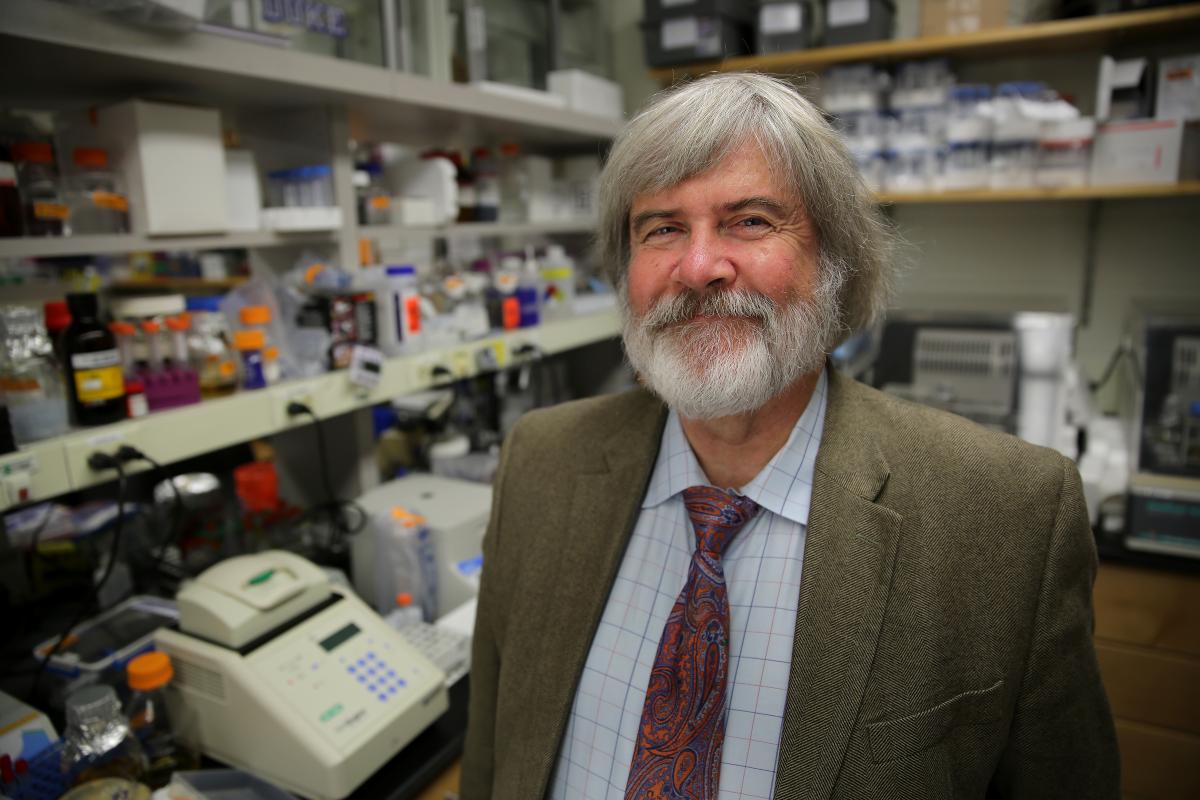Funding opp: MEDx Call for Pratt/SOM Proposals for Pilot Research Projects in Diagnostics and Devices
Update: Applicants are invited to attend MEDx office hours, from 10:30 a.m.-noon on Wednesdays in Twinnie's Cafe (ground floor, Fitzpatrick Cen
Study looks at in-home stem cell treatment
Nelson Chao, MD, MBA, professor of medicine and chief of the Division of Hematological Malignancies and Cellular Therapy, was feat
Brady featured in Prevention article about health problems during menopause
In the Prevention article,
1/14/16: School of Medicine's K Day, Career Development Award preparation opportunity
The School of Medicine Office for Faculty Mentoring will host K Day on Thur., Jan. 14, 2016.
2 from Medicine receive Research Staff Appreciation Awards
Two research staff members from the Department of Medicine have received a School of Medicine “Research Staff Appreciation Award,” in recognition of their exemplary support in the conduc
John Perfect on his research: It went fungal
Dr. John Perfect estimates a million cases of cryptococcal disease per year, with 600,000 deaths, most of them in sub-Saharan Africa where AIDS causes widespread immunosuppression. People can develop respiratory symptoms, like pneumonia; if the pathogen crosses the blood-brain barrier, the infection progresses to terrible, long-lasting headaches and sometimes fever. There can even be other neurological signs; cryptococcus can actually cause dementia. The problem is, even though we understand that Cryptococcal disease occurs in the immunosuppressed, we don’t know quite how the fungus sneaks through the blood-brain barrier.


